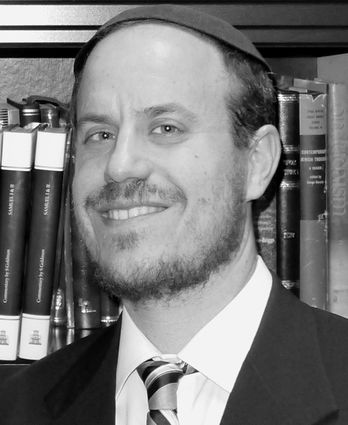Orthodox Jews solidarity with gays
When our synagogue heard about the horrific tragedy that took place at the Pulse nightclub in Orlando, it was at the same time that we were celebrating the festival of Shavuot, which celebrates God's giving of the Torah.
As Orthodox Jews, we don't travel or use the Internet on the Sabbath or on holidays, such as Shavuot. But on Sunday night, as we heard the news, I announced from the pulpit that as soon as the holiday ended at 9:17 p.m. Monday, we would travel from our synagogue in Northwest Washington, D.C., to a gay bar as an act of solidarity.
We just wanted to share the message that we were all in tremendous pain and that our lives were not going on as normal. Even though the holiday is a joyous occasion, I felt tears in my eyes as I recited our sacred prayers.
I had not been to a bar in more than 20 years. And I had never been to a gay bar. Someone in the congregation told me about a bar called the Fireplace, so I announced that as our destination. Afterward, I found out it was predominantly frequented by gay African Americans.
Approximately a dozen of us, wearing our kippot, or yarmulkes, went down as soon as the holiday ended. Some of the members of our group are gay, but most are not. We did not know what to expect. As we gathered outside, we saw one large, drunk man talking loudly and wildly. I wondered whether we were in the right place. Then my mother, who was with me, went up to a man who was standing on the side of the building. She told him why we were there. He broke down in tears and told us his cousin was killed at Pulse. He embraced us and invited us into the Fireplace.
We didn't know what to expect, but it turned out that we had so much in common. We met everyone in the bar. One of the patrons told me that his stepchildren were actually bar-mitzvahed in our congregation. Another one asked for my card so that his church could come and visit. The bartender shut off all of the music in the room, and the crowd became silent as we offered words of prayer and healing. My co-clergy Maharat Ruth Friedman, shared a blessing related to the holiday of Shavuot, and she lit memorial candles on the bar ledge. Then everyone in the bar put their hands around each other's shoulders, and we sang soulful tunes. After that, one of our congregants bought a round of beer for the whole bar.
Everyone in the bar embraced each other. It was powerful and moving and real and raw.
After that we moved to the outdoor makeshift memorial service at Dupont Circle. There, too, we did not know what to expect. But as we gathered around the circle, people kept coming up to us and embracing us. One man we met there told us that his daughter sometimes prays with us. Others were visiting from Los Angeles but joined in full voice clearly knowing the Hebrew words to the song we were singing.
As we were singing, I looked over at some gay members of our congregation and saw tears endlessly flowing down their faces. I felt the reality that we are living in a time of enormous pain. But I also felt that the night was a tremendous learning experience for me. I learned that when a rabbi and members of an Orthodox synagogue walk into a gay African American bar, it is not the opening line of a joke but an opportunity to connect; it is an opportunity to break down barriers and come together as one; it is an opportunity to learn that if we are going to survive, we all need each other.
Shmuel Herzfeld has been the rabbi of Ohev Sholom: The National Synagogue since 2004. Ohev Sholom is the oldest Orthodox synagogue in Washington, DC.
This article was reprinted from The Washington Post with permission by the author.




Reader Comments(0)